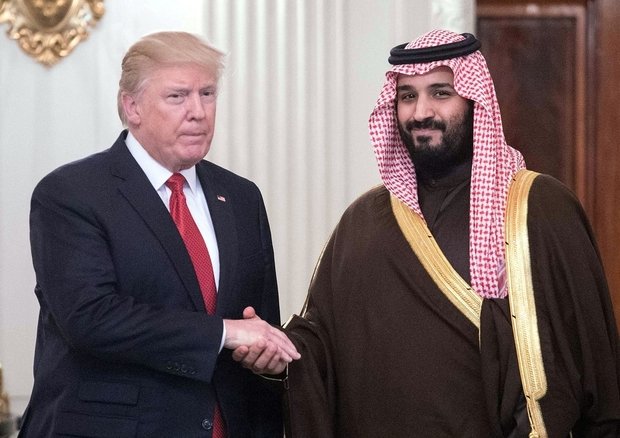U.S. and the end of Yemen War, Washington’s attempt to save Riyadh’s ruling family

TEHRAN - Recently, U.S. Secretary of State Mike Pompeo issued his strongest statement yet on the war in Yemen, calling for a cessation of hostilities in Yemen under UN-led negotiations.
James Mattis, U.S. Secretary of Defense in a meeting in Washington also urged all sides involved in the Yemen War to take steps towards peace talks within the next 30 days.
After almost four years of Saudi Arabia led invasion of Yemen, that claimed 30,000 lives of Yemenis, wounded hundreds of thousands, displaced millions, and gave rise to famine and disease, the U.S. has suddenly become concerned and called for peace talks in November in a third country.
Exposure of Khashoggi’s murder and intentional pressure on Saudi Arabia
The tragic fate of Jamal Khashoggi, a veteran Saudi journalist critical of Al-Saud, broke out a massive wave of international pressure against the Saudi regime, which severely disrupted the image of the crown prince of Saudi Arabia during the past month. Muhammad bin Salman (MBS) and his supporters in the U.S. foreign policy have been in a tough condition ever since.
There is no doubt that, after the murder of Khashoggi in the Saudi consulate Istanbul, and the clear role of MBS in the order of his murder, the cost of support for the Saudi regime and his young prince had gone up for the most beloved American authorities, and the head of them Donald Trump and his son-in-law. The continuous efforts of the Saudi-Zionist lobby in the past year or so to create a modernist, reformist, and moderate figure from MBS have been largely lost with the murder of Khashoggi.
Today, Al-Saud has become a hated regime by public more than ever before. Despite the unwillingness of great powers to call for punishment of the Saudi leaders, the support for the crimes committed by the Saudi-led coalition against Yemen has is getting harder by day.
It is quite clear to everyone that MBS initiated the ongoing Yemeni on war. Now that all the eyes are on the brutality of the Saudi regime, it is not easy to send weapons to Riyadh, and give them intelligence and logistic support, as well as comprehensive media and political backing, a plan that is to prevent the deterioration of the situation for Riyadh’s rulers.
Coalition failure in the battle field
Since day one of the Yemeni war, plans and predictions of Saudi Arabia and the United Arab Emirates have failed. After spending tens of billions of dollars of ammunition and killing casualties and losing their own forces and mercenaries, until now, Saudi-led coalition has only been able to gain access to Aden and other small parts of Yemen and failed to reach important Yemeni cities such as Sana'a, Sa’dah, and especially the strategic port of Hudaydah.
A few months of the coalition’s heavy battle to take control of Hudaydah port turned into a long-haul fruitless fight. The port, which accounts for 70% of Yemen’s imports, is very strategic, and the coalition's operation to siege the city and cut off its connection with the rest of the Yemeni soil has gone nowhere.
Obviously, the continuation of this war, apart from the overwhelming costs for Riyadh and its regional allies, is not possible, and while there is no progress on the ground for the Saudis, Americans have the option to end the war to free their Saudi friends and relieve them from the financial burden and global pressure of the Yemen crisis.
Take away
It seems that Saudi Arabia has not been able to reach the goals that Washington has drawn for it in the Yemeni war. The Saudis mistakenly believe that the Yemeni crisis has a military solution, while such an idea will not only solve the problem, but adds to it each day and, of course, to the suffering of the oppressed people of Yemen.
The White House decision to put an end to the war, if true, is not about human rights issues in Yemen, but to save al-Saud from the marsh that has been created with the resistance of the Yemenis. Americans now think of peace and reconciliation in Yemen, now that they have failed to bring the Yemeni people to their knees.
Now that Ansarullah still has the upper hand in the Yemen war, they must prepare themselves with the same stance to end the war and resolve the rights of the Yemeni people.
